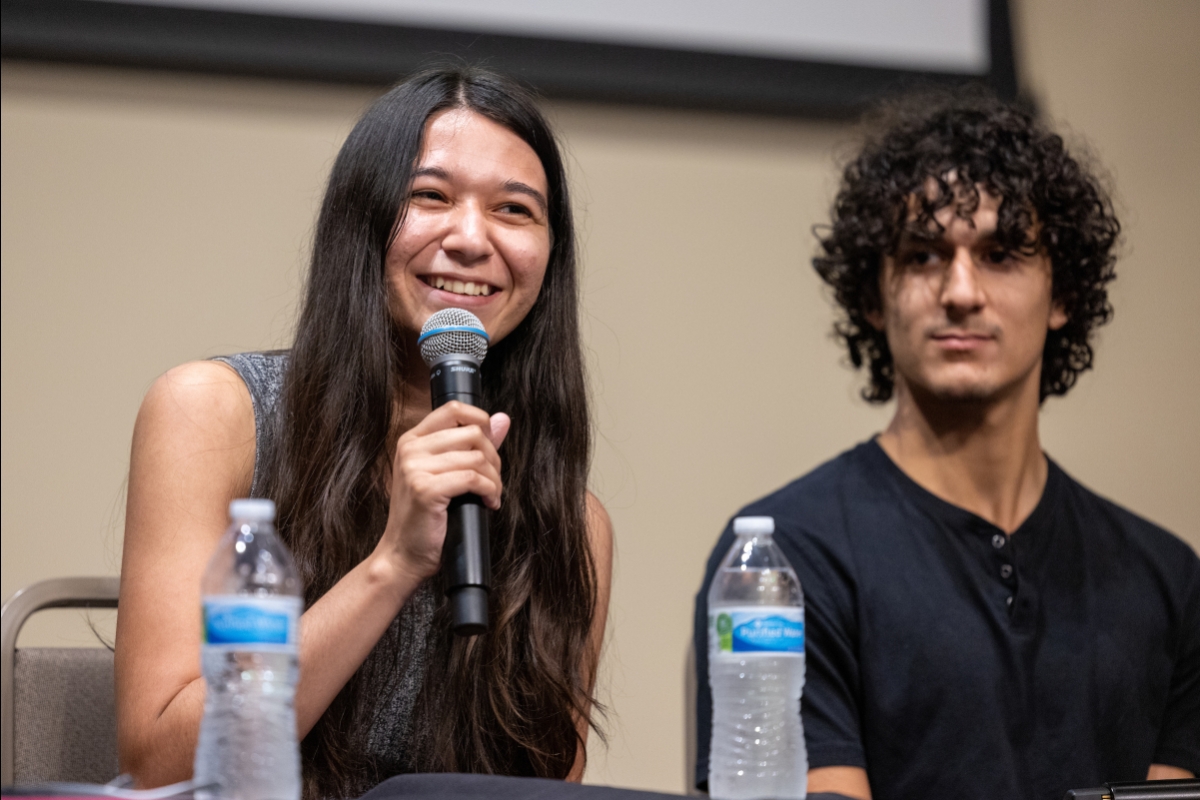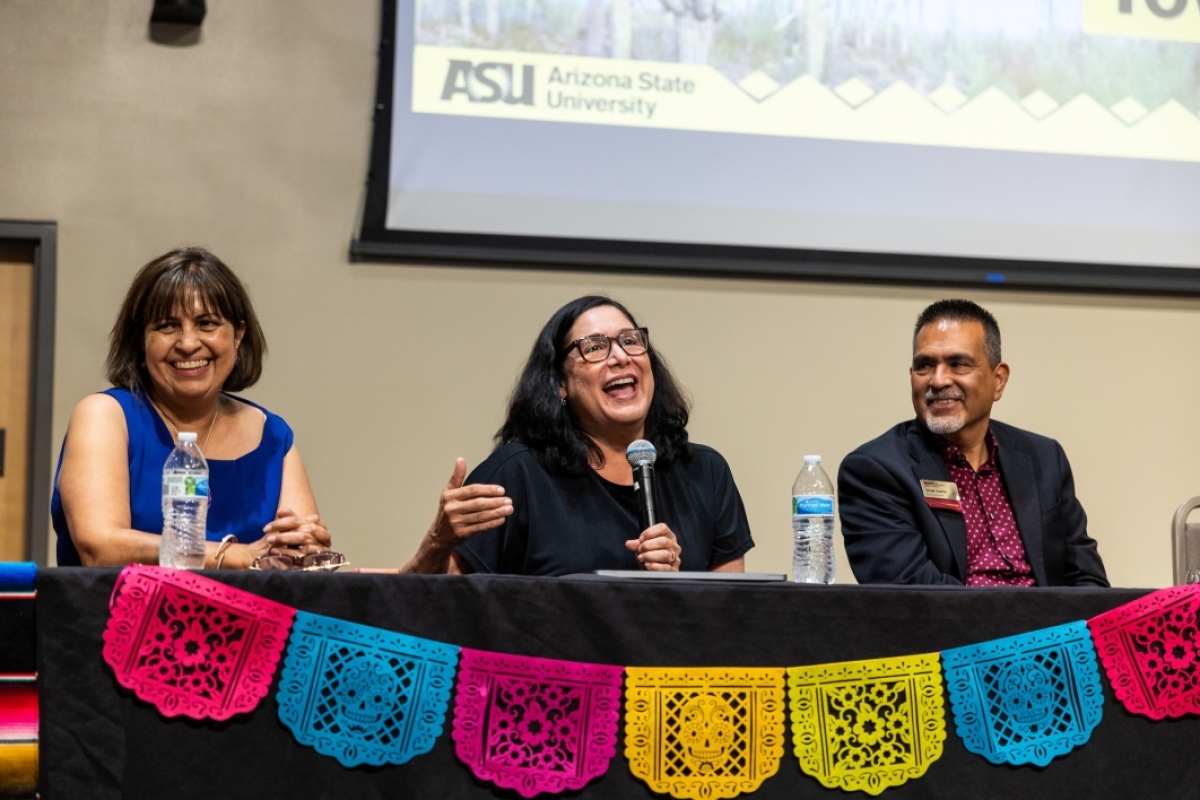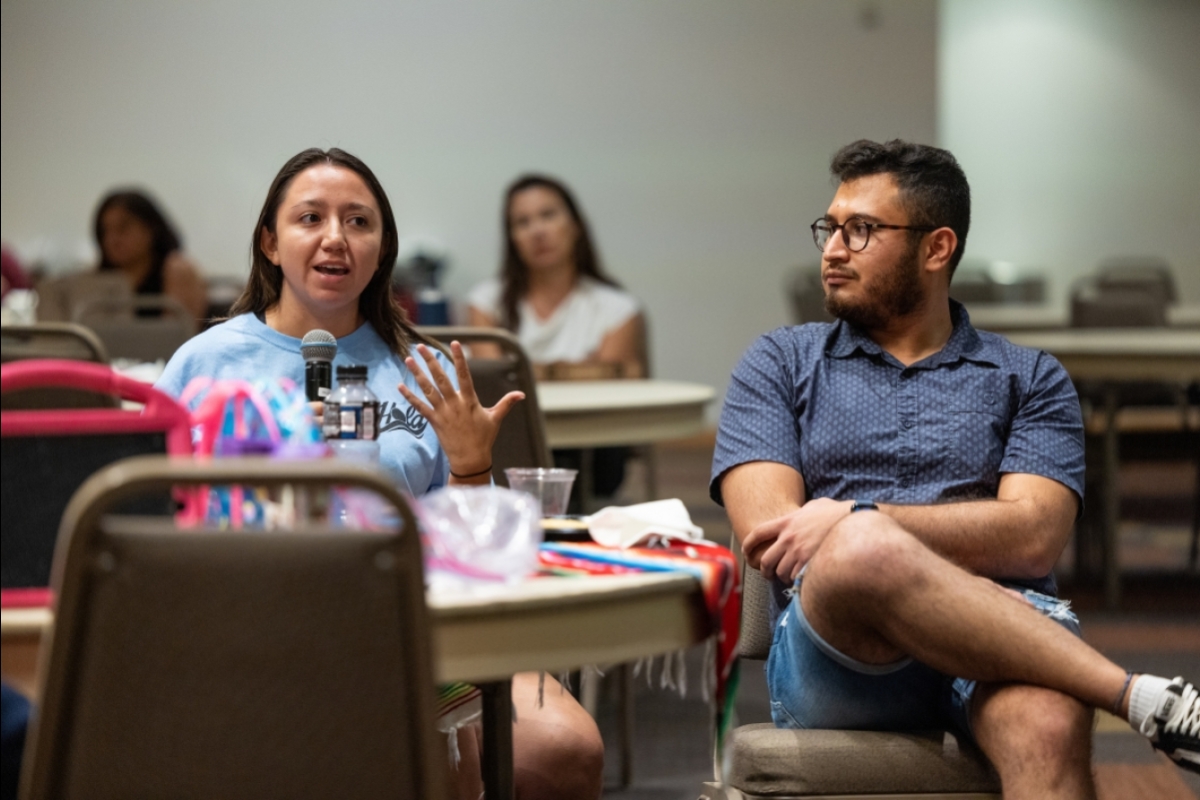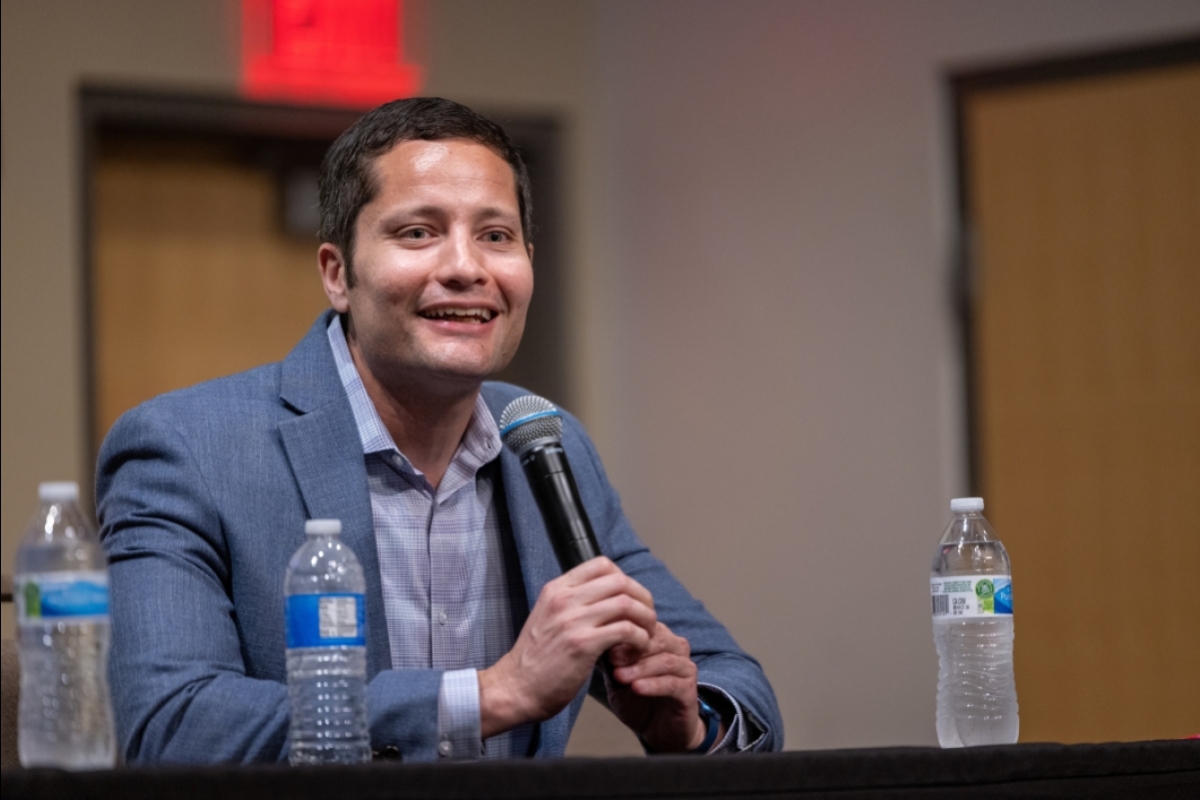ASU town hall addresses how to best serve Hispanic students, community
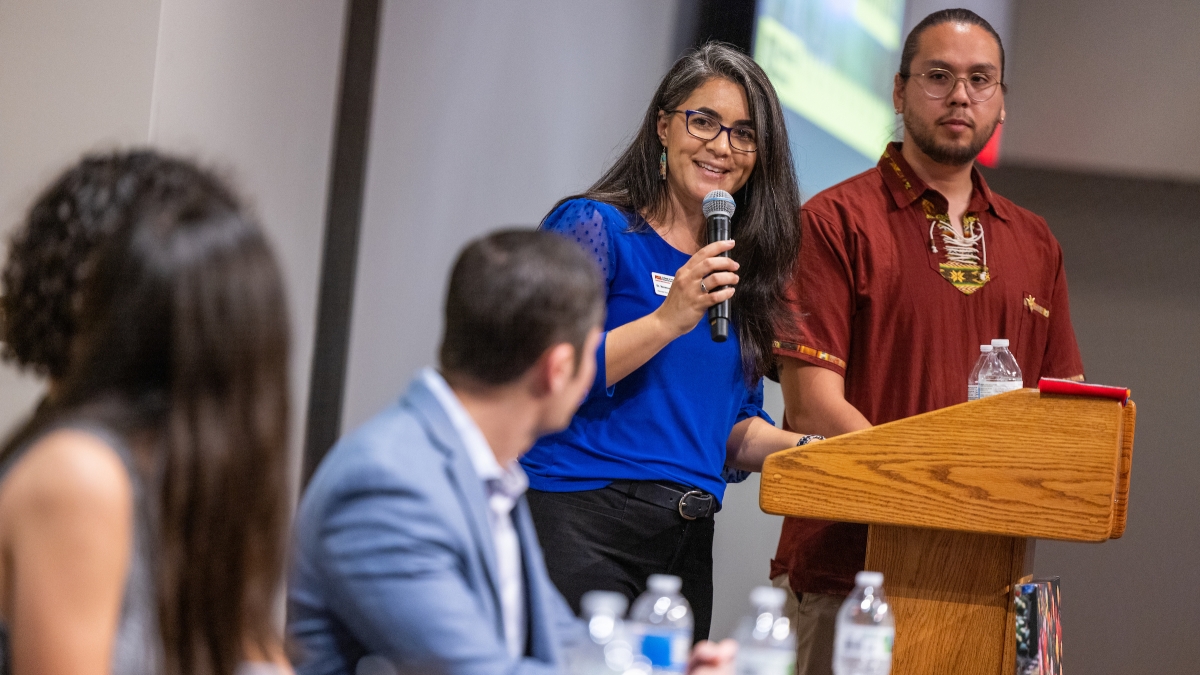
Arizona State University has already done a lot of work to attract and support Hispanic students — as evidenced by its designation this year as a Hispanic-Serving Institution — but more needs to be done for this population and the community, according to participants at a town hall on Monday night.
In June, the U.S. Department of Education named ASU as a Hispanic-Serving Institution (HSI), which means that the university has an enrollment of Hispanic undergraduate students that is at least 25% of the overall student body. In 2021, ASU’s Hispanic students made up 26% of the on-campus undergraduate population, up from about 19% in fall 2011.
Lisa Magaña, professor in the School of Transborder Studies and associate dean of diversity, equity and inclusion for the College of Liberal Arts and Sciences, said that the designation is a milestone.
“Typically, HSIs are very small and the fact that the Tempe campus has reached that as a Research 1 university has important implications for all campuses, for research, getting funding and thinking of big, broad ideas,” said Magaña, who also is a Provost Fellow for Hispanic-Serving Initiatives.
“This will definitely have an impact on the community.”
She spoke at a town hall event Monday at the Polytechnic campus in recognition of Hispanic-Serving Institution Week.
The HSI designation not only reflects the number of Hispanic students, but also ASU’s financial and academic support programs, K–12 outreach programs and resources for the broader community.
Jorge Juárez, the new executive director of the Sun Devil Fitness Center, grew up the youngest of seven children from a single mother and became a first-generation college student with the help of a guidance counselor. He said the designation means that students like he was are not alone.
“From a math standpoint, this means that one out of every four people will look like me and know my culture and know my story,” he said at the town hall.
“Thirty-five years ago, I wish there were resources for people like me.”
Juárez said that he supports Hispanic students through hiring.
“I hire students and try to mentor them and put them in cohorts where they can make connections.”
The HSI designation means ASU embraces Hispanic students not only in quantity, but with quality too, according to Clinical Assistant Professor Kevin Correa, who is president of the Chicano/Latino Faculty and Staff Association at ASU and program co-coordinator for higher and postsecondary education in Mary Lou Fulton Teachers College.
“The quantity can be celebrated but I think about the quality of experience that students are having,” said Correa, the former director of the ASU Student Success Center.
“I think about Hispanic students and do they have the opportunity to learn more about their culture? Look at retention rates — how many are retained from the first to the second years?
“At ASU our goals as an institution are to get over 90% retention from first to second years and over 85% graduation rates,” he said.
“We’re making great strides but we have a way to go.”
Cecilia Alcántar-Chávez, president of the Undergraduate Student Government (USG) Polytechnic, is a first-generation Hispanic student. She grew up on a raisin farm in central California.
“For me, an HSI is one in which students are supported and feel welcome and can thrive,” said Alcántar-Chávez, who is majoring in mechanical engineering systems with a minor in project management.
“As a first-generation student, I knew I wanted to come to college but I didn’t know how to go about it; but ASU made it easy. They supported me every step of the way.”
Nico Arango, vice president of policy for Undergraduate Student Government Polytechnic, is majoring in mechanical engineering systems thanks to a New American University Scholarship.
“I’m here because this university supports Hispanic students,” he said.
“I believe that HSI means not only being inclusive to Hispanic students but also pushing them. I didn’t seek out USG, I was pushed to do it because someone saw my potential.”
The town hall participants discussed community outreach by ASU as well.
Rafael Martínez, an assistant professor of Southwest Borderlands in the College of Integrative Sciences and Arts, said that when he arrived at the Polytechnic campus in fall 2020, the pandemic thwarted his goal of connecting with the greater East Valley community.
But he was able to do archival research and discovered that traditional Hispanic neighborhoods in Mesa and Chandler were often cut off from main town resources such as running water, electricity and street lights.
“This is an opportunity for us to learn from the stories of the past and leverage our institutional powers to serve the community,” he said.
He said that traditional historic conservation prizes concepts like architecture.
“But for people of color, the experiences and memories and stories are more important,” he said. “We must first listen, preserving community stories and creating meaningful experiences.”
The speakers described several initiatives that support the pipeline to ASU and the community, such as the College Assistance Migrant Program and the Hispanic Mother-Daughter Program.
Magaña said that during the pandemic, ASU worked with the city of Phoenix to have a famous cartoonist get the word out about vaccines in the Latino community.
“It was a great example of the city, the community and the university working together,” she said.
The town hall speakers discussed ways that ASU can continue to connect with the larger community.
Magaña said that one idea is tapping the business community, including the Hispanic Chamber of Commerce, to help food vendors who may be intimidated by the process of working with ASU.
Other ideas were:
• Have more Spanish speakers on campus.
• Make sure important web pages are available in Spanish.
• Focus on recruiting not only students, but their entire families.
• Engage Spanish-language media, particularly radio.
• Continue to provide support and advocacy for undocumented students.
• Provide guest speakers, classes and certificate programs to the community in Spanish.
• Hold voter education and registration drives.
Irasema Coronado, professor and director of the School of Transborder Studies, wants to see more rural outreach.
“There are high schools in this state that are never visited by an ASU recruiter,” she said.
“If we don’t go to them, how do we bring them to ASU? We need to take our show on the road.”
Coronado told the event crowd about a recent graduation ceremony, when she was in her office and a Hispanic family came by.
“It was the mom, the stepdad, the brother, the neighbor, 12 people, all of them in wonderful ASU T-shirts,” she said.
The mother spoke to Coronado in Spanish: “'I’m here to thank you. Four years ago I left my son with you and now he’s graduating.’
“I said, ‘Thank you for allowing us to be part of this dream.’”
Top image: Moderators Vanessa Fonseca-Chavez, associate dean of diversity, equity and inclusion for the College of Integrative Sciences and Arts, and Martine Garcia, TRIO program director, address the panelists during the Hispanic-Serving Institution Town Hall at the Polytechnic campus on Sept. 12. Photo by Deanna Dent/Arizona State University


